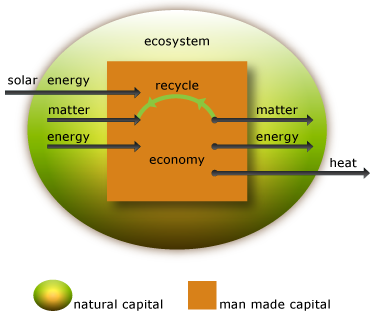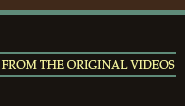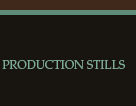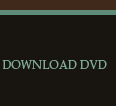


Featuring four historic videos
-----------------------------------------------
"An Introduction to Ecological Economics"
"Investing in Natural Capital"
"Conversation for a Sustainable Society"
"Costa Rica Counts the Future"
in one DVD

“A thing is right when it tends to preserve the integrity, stability, and beauty of the biotic community. It is wrong when it tends otherwise.” – Aldo Leopold, The Sand County Almanac, 1949
The ideas and theories of Conventional Economics govern international trade and commerce. Conventional Economics is primarily concerned with the isolated, circular flow of exchange between producers and consumers. Because the Conventional Economic model is driven by the exchange of income, which is, in theory, infinite, problems such as resource exhaustion, over-population, and pollution are not formally considered.
Ecological Economics takes a much broader view. Instead of narrowly focusing on the circular flow of goods from producer to consumer, Ecological Economics recognizes that the human economy is a smaller, open sub-system of a finite, non-growing, and materially closed ecosystem. The economy is open in that it receives the input of the sun (energy) and natural resources (matter) and transforms those material inputs into commodities through a variety of production processes. Just as commodities are produced, so is the residue, or waste, of these production systems. The waste must eventually be returned to, or absorbed by, the larger environment.
Ecological Economics acknowledges this self-evident circumstance and actively challenges the prevailing economic paradigm that considers these observations as ‘external’ to the economic process. Our remaining Natural Capital Assets - our air, water, oceans, biota and soil - are being polluted and plundered in the mistaken conventional belief that there will always be more. We must preserve and restore our Asset Base by recognizing the dependence of the economy on a healthy biosphere. - Dean Button, Rensselaer Polytechnic Institute
“Griesinger’s videos on ecological economics are real assets for understanding how our economic activities should relate to the environment.” – Dr. Thomas Lovejoy, Smithsonian Institution
“I am pleased to tell you that we think your films will be very suitable for our lectures as our students enjoy seeing and hearing world-famous experts explain their concepts in their actual words. We also note that the talks are given in a very pronounced and easily understandable way.” – Dr. Uwe Schubert, Interdisciplinary Institute of Environmental Economics and Management, Wirtschafts University, Vienna, Austria
1991 - 45 minutes
“Economists talk about scarcity. Ecologists speak of conservation. The beauty of this film is that it explores the interface between economics and ecology, and raises one of the most pressing questions of our time: if resources are so scarce, why isn't better care taken in using them? Highly recommended.” - Don Cole, Professor of Economics, Drew University
“Coherent, accessible, and tightly constructed, this video introduces an economics that counts the earth.”
– Alan Durning, Worldwatch Institute
An Introduction to Ecological Economics is our first, and it has turned out to be a classic. Gaylord Nelson, Herman Daly, and John Cobb, Jr. go to the heart of the complaint by pointing out the staggering costs of traditional, neo-classical schemes for economic growth and development. In Herman Daly’s words: “We can no longer treat the earth as if it is a business in liquidation!” Gaylord Nelson’s first 10 minutes in this tape are brilliant. His revelatory analysis of the devastation wrought by traditional industrial practices in the forests of Siberia as well as in the oceans off Japan are second to none. Daly and Cobb’s ‘Index of Sustainable Economic Welfare’ is discussed, along with a rousing, humorous condemnation of consumerism and the need for a global 12 step program to kick the habit. Gaylord Nelson closes by emphasizing the importance of teaching environmental concepts to coming generations. He notes the spectacular success of Wisconsin’s ‘Kindergarten through 12th Grade’ environmental education mandate. Interestingly enough, this tape was purchased soon after its release by both the Clinton/Gore and Bush/Quail ’92 presidential campaigns.
Gaylord Nelson, Counselor
The Wilderness Society, Washington, DC
Herman Daly, Senior Economist
Environment Department, The World Bank, Washington, DC
John Cobb, Jr., Emeritus Professor
Philosophy/Theology, School of Theology, Claremont, CA
Anne Kapuscinski, Associate Professor
Fisheries/Conservation Biology, University of Minnesota
Michael Oakes, Graduate Student
Conservation Biology, Sustainable Development, University of Wisconsin
Martin Evers, Graduate Student
Economics/Environmental Studies, University of Wisconsin
Gary Aamodt, Vice Chair
The Madison Institute, Madison, WI
1993 - 42 minutes
“More than 70% of total human population growth has occurred in this past century. In the context of much greater population density, long-standing assumptions about the exploitation and consumption of our resource base could end up bankrupting even the world's richest countries. 'Investing in Natural Capital' is a provocative, educational exploration of the ways in which ecology can, and must, transform economic theory.” - Aaron Sachs, Worldwatch Institute
Investing in Natural Capital took us to Stockholm, Sweden, where population growth and carrying capacity issues were the overriding concern. In this tape, it is pointed out that humans and human-made capital formation cannot continue to deplete and poison our natural capital accounts. Economists and businesses must learn that the new requirements of a ‘natural capitalism’ involve a fundamental recognition that the global economic system is a sub-set of a much larger, and surprisingly fragile, ecosystem. ‘Investing in Natural Capital’ is essentially a treatise on the ethics and viability of current international treaties, such as the GATT, NAFTA, and MIA, that unequivocally promote the consumption and ultimate exhaustion of our ever-diminishing resource base. By suggesting that we must redesign our commercial systems and trading structures so that they compliment and preserve our remaining natural capital assets, ‘Investing in Natural Capital’ challenges the viewer to look deeper into the affairs of trade and how it affects the health of the planet.
Herman Daly, Senior Economist
Environment Department, The World Bank, Washington, DC
Robert Costanza, Director
Maryland Institute for Ecological Economics, Solomons, MD
AnnMari Jannson, Associate Professor
Systems Ecology, Stockholm University
Cutler Cleveland, Professor
Energy/Environmental Studies, Boston University
Paul Ekins, Research Fellow
Economics, Birkbeck College, London, England
Paul Ehrlich, Professor
Population Sciences, Stanford University
Charles Perrings, Professor
Environmental Economics, University of York, England
Karl Göran Mäler, Director
Beijer Institute, Royal Swedish Academy of Sciences, Stockholm
William Rees, Professor
Community/Regional Planning, University of British Columbia, Canada
Carlos Miños, Student
Martha Gilliland, Dean
Graduate College, University of Arizona
Stephen Viederman, President
Jessie Smith Noyes Foundation, New York, NY
Nils Kautsky, Professor
Systems Ecology, Stockholm University
Lena Kautsky, Associate Professor
Botany, Stockholm University
Rolf Hersson, Producer
Swedish National Radio
Per Larsson, Science Reporter
Stockholm University
Jonathan Harris, Research Associate
Global Development/Environment, Tufts University
C.S. Holling, Professor
Zoology, University of Florida
1993 - 43 minutes
“Not merely philosophy, the video includes constructive suggestions by a congenial group of thoughtful people…a truly stellar group!” – Science Books and Films
Conversation for a Sustainable Society features Amory and Hunter Lovins who have led the global campaign to value resource productivity. They promote market-based reforms that promote better choices and greater profits through simple, relatively quick pay-back investments in energy efficiency. The ‘conversations’ in this tape steer us toward better motors, lights, and HVAC systems; smarter building retrofits and leases that ultimately save money and increase productivity; and regulatory/accounting innovations that promote sustainability through markets, profits, enterprise, and opportunity. Although this is a very straightforward tape, with little embellishment, our customers love the attitude. Amory and Hunter have an attitude. They know that these technologies and ideas can and will change the world.
Amory Lovins, Vice President, CFO, Director of Research
Rocky Mountain Institute, Snowmass, CO
Hunter Lovins, President, Executive Director
Rocky Mountain Institute, Snowmass, CO
Dennis Meadows, Professor/Director, Inst. for Policy and Social Science Research, University of New Hampshire
Dana Jackson, Associate Director
Land Stewardship Project, White Bear Lake, MN
Thomas Michael Power, Professor and Chair
Economics, University of Montana
Robert Gilman, Director
Context Institute, Langley, WA
Claudine Schneider, President
Renew America, Washington, DC
David Orr, Professor and Chair
Environmental Studies, Oberlin College
1996 - 45 minutes
“As with all of Griesinger’s videos on ecological economics, ‘Costa Rica Counts the Future’ charts a course more of us should be following. Simple, elegant and innovative, the solutions presented here demonstrate how a nation, from the President of Costa Rica to local workers’ cooperatives, can join forces to transform decades of destructive economic activity into a truly restorative economy. Highly recommended.”
– Paul Hawken, founder, Natural Capital Institute
Costa Rica Counts the Future/Costa Rica Cuenta el Futuro (1996 - in Spanish and English, with subtitles). For our final tape in this series, we traveled to the wilds of Costa Rica to explore a country that is doing everything it can to actualize so many of the primary concepts of ecological economics. Through trial and error, President Figueres has solidified and capitalized on his country’s fabulous reputation for creative, often very controversial experiments in environmental policy. In a recent success, concerning one of the still developing issues in the video, this administration persevered in the Climate Change talks in Kyoto and, with Brazil, smoothed the way for Third World countries to sell carbon-dioxide mitigation services to industrialized countries. The government also continued its support for its private sector partner, INBio, in their drive to profit from the sale of licenses to international corporations that are developing potential drugs and medicines from explorations in the rain forests of Costa Rica. Specifically, this government has signaled to their people that sustainability is the way to go. In a richly illustrated tape, we have included three rural cooperatives that are struggling to make a living through their respective efforts in eco-tourism, botanical medicines and organic agriculture; a newly constructed women’s community center and restaurant; and a very successful, and sustainable, charcoal production effort in the mangroves. This is a lovely tape with special introductions by Juan Martinez-Alier, Paul Ekins, and Donella Meadows who argue for vision, justice, and restorative sanity in the global economy.
Donella Meadows, Journalist, Adjunct Professor,
Environmental Studies, Dartmouth College
Paul Ekins, Senior Lecturer, Environmental Policy Unit,
Economics Department, Keele University, England
Juan Martinez-Alier, Professor
Economics, Universitat Autonoma de Barcelona, Spain
José Maria Figueres,
Costa Rican President (1994-1998)
Carlos Hernández, Associate
Mesa Nacional Campesina, San José, CR
Dr. Rodrigo Gámez, Director
INBio, Santo Domingo, Costa Rica
Dr. Alvaro Umaña, Director
Costa Rican National Commission on Climate Change
Ramiro Valverde Camacho
Cattle Farmer, San Pedro, CR
Rosalba Ortíz, Masters Student in Ecological Economics
Universidad Nacional de Costa Rica
Three Costa Rican Southern Zone Cooperatives:
Asociación Feminina de la Palma
Coopeunioro
Coopemangle
The Madison Institute and the Madison Campus Ministry
Vern Visick
The International Society for Ecological Economics
Robert Costanza, Herman Daly, Dean Button, and Janice King
The Department of Systems Ecology, Stockholm University
AnnMari and Bengt-Owe Jansson, Nils and Lena Kautsky
Rocky Mountain Institute
Amory and Hunter Lovins, Andrew Jones, Jeanette Darnauer
Universidad Nacional de Costa Rica
Olman and Katia Segura, David Barton and Rosalba Ortíz













